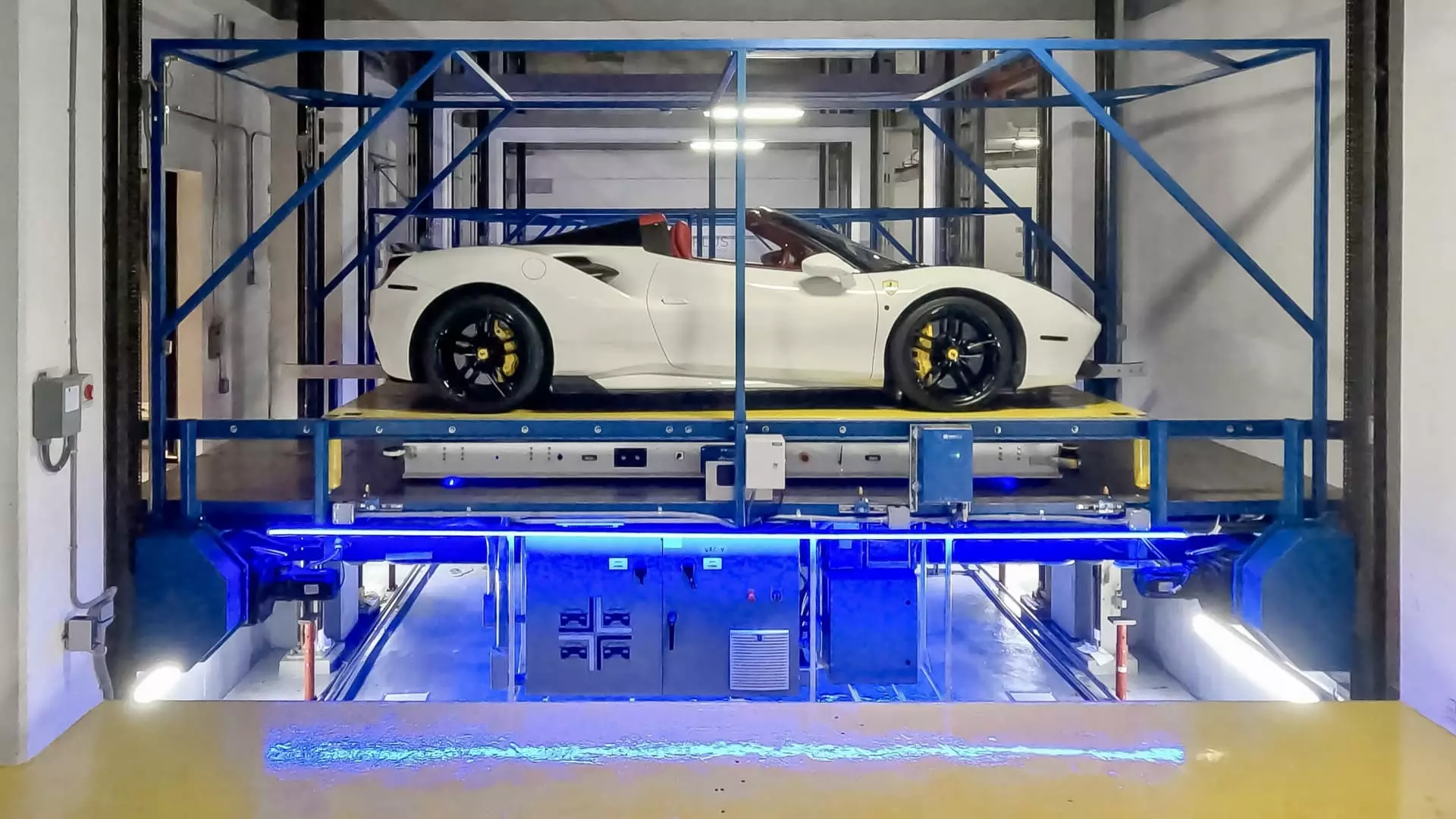The demand for efficient parking solutions in urban areas has led to an exciting shift towards automation in the real estate industry. One notable example of this trend can be seen in the Brickell House in Miami, where a state-of-the-art automated parking garage is transforming the way residents store their vehicles. The combination of luxury living and robotic technology not only enhances convenience and saves time for residents but also highlights the burgeoning field of automated smart parking.
Situated within a stunning 46-story condominium tower, Brickell House’s parking garage is a marvel of modern engineering. Spanning 13 levels, this facility utilizes robots known as Automated Guidance Vehicles (AGVs) designed to handle the intricacies of parking. These AGVs, which roam freely within the garage’s confines, use advanced vision systems and lasers to transport cars to designated spots without any human intervention. The inclusion of barcodes embedded in the floor aids the AGVs in navigating the parking layout, enabling an efficient and seamless parking process.
With five dedicated drive-up bays, incoming residents are relieved of the time-consuming burden of locating parking spots. Instead, they simply hand over their vehicles to these high-tech robo-valets who manage the intricate task of parking. Such automation not only reduces stress but also ensures maximum use of available space, squeezing vehicles in with only inches between them, a feat impossible in traditional parking scenarios.
Automated parking systems are quickly becoming a preferred solution in luxury developments across major urban centers from Miami to New York. As the real estate market evolves, developers are increasingly looking to integrate advanced parking technologies as part of their project offerings. The allure of these modern systems comes not only from their glitzy exterior but also from their ability to optimize space usage within buildings.
According to Grand View Research, the smart parking market is projected to skyrocket from a valuation of $6.5 billion in 2021 to an astounding $30.16 billion by 2030. North America is anticipated to have a significant share of this growth. Factors contributing to this trend include the increasing population density in urban regions, where conventional parking spaces become increasingly scarce and costly. Developers view automated parking systems as a means to maximize revenue potential, permitting greater square footage for residential units instead of traditional garages.
Despite the myriad benefits that automated parking systems provide, they are not without challenges. Historical complaints in the realm of automated parking underscore the importance of reliability. For instance, prior iterations of parking systems at Brickell House faced significant failure, leading to costly lawsuits and a tarnished reputation. Such issues can breed skepticism and wariness among potential buyers and investors alike.
Conversely, advances in technology reveal a commitment to overcoming these early-stage challenges. Developers are now focusing their efforts on rigorous testing and the development of fail-safe mechanisms to enhance reliability. According to officials from the ParkPlus company, current AGV systems have been showcased to handle extensive operations, moving numerous vehicles in rapid succession without error. This wave of innovation embodies a desire to learn from the past and prioritize customer satisfaction in automated parking experiences.
Installing such sophisticated parking systems comes with a significant financial commitment. Peter Manis, the president of ParkPlus Florida, indicates that the cost for a system like that of Brickell House can range from $20,000 to $80,000 per parking spot. The inflated costs factor in not just the technology but also the potential for enhanced property value—a necessary trade-off for many developers in today’s competitive real estate landscape.
The steep prices of automated parking spots are matched with their increasing desirability; in some luxury buildings, parking spaces alone can command prices exceeding those of standard homes. This trend reflects evolving consumer expectations where convenience and innovation are paramount.
As the technological landscape continues to develop, automated parking systems are likely to gain traction in urban centers across the globe. Brickell House stands as a pioneering example of how luxury condos can adapt to the demands of modern living. The harmonization of cutting-edge technology and high-end lifestyle affirms that space optimization and convenience are integral to the future of urban real estate.
Amid growing acceptance and appreciation for smart parking solutions, the real estate community is faced with a compelling need to ensure innovations are both reliable and efficient. The implications extend beyond individual buildings—the successful integration of automated parking may very well reshape the contours of urban planning and living, heralding a new era where robotics simplify even the most mundane tasks. In a world increasingly driven by smart technology, the automated garage represents just the beginning of what is possible.

